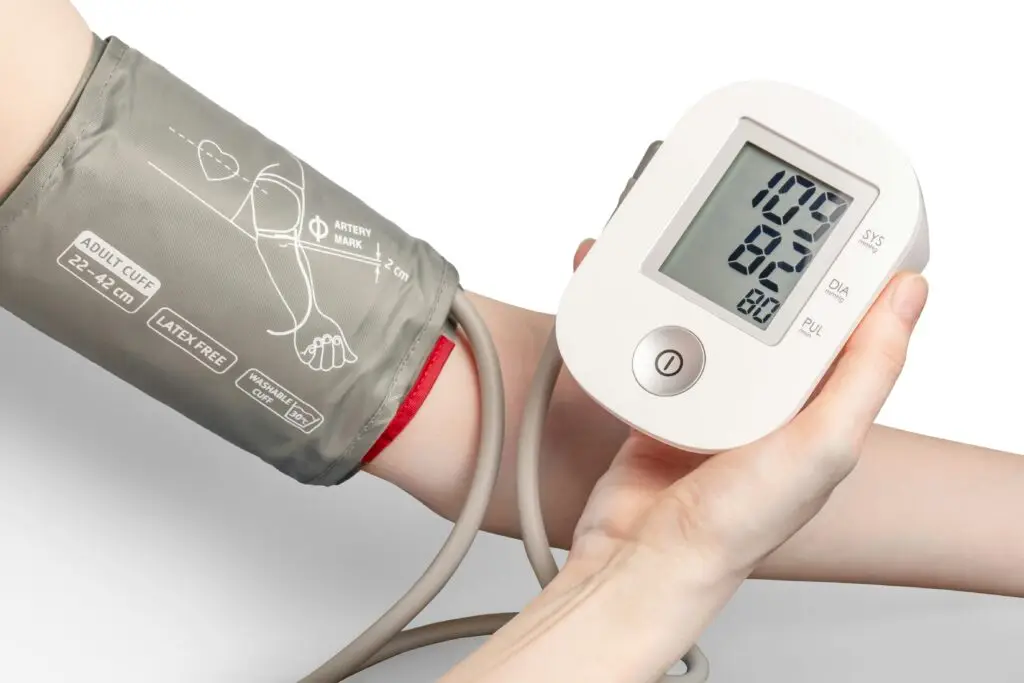
Regular health check-ups have become a staple in healthcare routines across countless countries, and in some places like certain European nations or parts of Asia, they’re even required by law for specific professions or age groups. These check-ups typically include a mix of lab tests, imaging, and hands-on physical exams aimed at folks who feel perfectly fine or those managing ongoing conditions, all aimed at monitoring their overall well-being over time. While a few studies have pointed out potential downsides, such as minimal radiation exposure from certain scans, the upsides far outweigh these concerns, offering real peace of mind and proactive health management that can truly change lives.
Table of Contents
- Who Needs Regular Checkups
- What Is the Importance of Regular Checkups
- When to Do Checkups by Age
- Types of Regular Checkups
- Check Up and Counselling
- Regular Checkup Limitations
- Word from Dr. Zara
- Frequently Asked Questions
Who Needs Regular Checkups
Most folks schedule their health checkups based on a bunch of personal factors like age, family history, lifestyle habits, or even job demands. But to make it straightforward, we can break it down into key life stages where these visits become especially crucial. This categorization helps tailor the approach, ensuring everyone from tiny tots to seasoned elders gets the attention they deserve.
Infants and Children
For the little ones, regular checkups are like building blocks for a strong foundation in life.
- They track growth milestones, catching any delays in height, weight, or motor skills early on.
- Vaccinations get updated to shield against common childhood illnesses like measles or whooping cough.
- Hearing and vision tests spot issues that could affect learning down the road.
- Nutritional advice helps parents navigate feeding challenges, preventing deficiencies.
- Behavioral assessments identify early signs of developmental disorders, allowing for timely interventions.
Adolescents and Teens
As kids hit their teen years, checkups shift focus to the whirlwind of physical and emotional changes.
- Hormone levels and puberty progress are monitored to address any irregularities.
- Mental health screenings become key, spotting anxiety or depression amid school pressures.
- Discussions on healthy habits cover everything from sleep to safe internet use.
- Sports physicals ensure they’re fit for activities without hidden risks.
- Education on reproductive health empowers them with knowledge for responsible choices.
Adults and Senior Adults
Grown-ups and elders often juggle more complex health needs, so checkups here emphasize prevention and maintenance.
- Chronic condition management, like blood pressure or cholesterol checks, keeps things stable.
- Bone density scans for seniors help ward off osteoporosis-related fractures.
- Cancer screenings ramp up based on age, targeting common risks.
- Cognitive evaluations detect early memory slips in older adults.
- Lifestyle reviews encourage adjustments for better heart health or mobility.
What Is the Importance of Regular Checkups
The core value of regular checkups lies in their ability to act as a health safety net, spotting subtle shifts before they snowball into major problems. They foster a partnership between you and your doctor, turning reactive care into a proactive strategy that enhances overall vitality. By integrating these visits into your routine, you’re investing in a longer, more vibrant life without the guesswork. Here are the main benefits of regular health ceheckups;
1. Monitor Existing Health Complications
Keeping an eye on ongoing issues ensures they don’t worsen unnoticed.
- Regular metrics like vital signs provide trends that guide treatment tweaks.
- Symptom logs during visits help refine management plans.
- Medication effectiveness is evaluated to avoid side effects.
- Progress toward health goals is tracked for motivation.
- Complications from conditions are caught before escalating.
2. Review Medical History
Diving back into your past records builds a clearer picture of your health trajectory.
- Family patterns are revisited to highlight inherited risks.
- Past illnesses inform current preventive measures.
- Vaccination histories are updated for gaps.
- Allergies and reactions are double-checked for safety.
- Lifestyle changes since last visit are noted for impacts.
3. Diagnosis of Diseases
These sessions serve as a diagnostic hub, pinpointing issues through comprehensive evaluation.
- Symptoms are correlated with test results for accurate identification.
- Holistic views combine physical and lab data.
- Referrals to specialists stem from initial findings.
- Differential diagnoses rule out similar conditions.
- Follow-up protocols ensure thorough resolution.
4. Early Detection of Diseases
Catching problems at the bud stage dramatically improves outcomes.
- Subtle signs are identified before symptoms appear.
- Progression is halted with timely interventions.
- Treatment options expand when issues are nascent.
- Survival rates boost for many conditions.
- Quality of life is preserved by avoiding advanced stages.
5. Risk Assessment
Evaluating potential threats allows for personalized prevention plans.
- Lifestyle factors are weighed against health probabilities.
- Genetic predispositions are factored in.
- Environmental exposures are considered.
- Future health forecasts guide recommendations.
- Mitigation strategies are outlined clearly.
6. New Medical Developments
Staying updated incorporates the latest advancements into your care.
- Emerging guidelines are applied to your profile.
- Innovative tests or tools are introduced when relevant.
- Research-backed changes refine your routine.
- Personalized medicine options are explored.
- Evolving best practices enhance effectiveness.
When to Do Checkups by Age
Earlier, we broke down who needs these checkups by life stages, grouping them into infants/children, adolescents/teens, and adults/seniors to make sense of the varying needs. Now, to get more specific, here’s a handy guide on timing for key checkups tailored by age brackets. This isn’t across-the-board always, Chat with your doc for personalization, but it gives a solid starting point. Below is Diagram 1.1, laid out as a table for clarity.
Diagram 1.1: Recommended Checkup Timings by Age
| Age Group | Key Checkups and Frequency |
| 0-2 Years (Infants) | Well-baby visits every 1-3 months: Growth tracking, vaccinations, developmental screens. |
| 3-12 Years (Children) | Annual visits: Vision/hearing tests, immunizations, nutrition/behavior reviews. |
| 13-18 Years (Teens) | Yearly exams: Puberty monitoring, mental health checks, sports physicals if active. |
| 19-39 Years (Young Adults) | Every 1-3 years: Blood pressure, cholesterol, lifestyle counseling. |
| 40-64 Years (Middle Adults) | Annual or biennial: Cancer screens (e.g., mammograms for women), heart health assessments. |
| 65+ Years (Seniors) | Annual: Bone density, cognitive tests, fall risk evaluations, chronic management. |
Types of Regular Checkups
Regular checkups come in various flavors, often classified as multiphasic (covering multiple systems at once), preventive (focused on warding off issues), periodic (spaced out over time), or annual (yearly checkup routines). The type you choose depends on your health status and goals, but they all aim to provide a comprehensive snapshot. Let’s explore the main components that make up these checkups.
Laboratory Tests
These involve analyzing samples to uncover hidden insights.
- Blood work checks for imbalances in sugars, lipids, or hormones.
- Urine analysis detects infections or kidney function issues.
- Stool tests screen for digestive irregularities.
- Biomarker panels assess inflammation or organ health.
- Genetic testing if family risks warrant it.
Screening

Targeted checks look for specific silent threats.
- Imaging like ultrasounds or X-rays visualises internal structures.
- Functional tests measure things like lung capacity.
- Sensory evaluations test hearing or vision acuity.
- Dermatological scans spot skin anomalies.
- Neurological quick checks for reflexes and balance.
Physical Examination

Hands-on assessments provide immediate feedback.
- Vital signs recording sets baselines for heart rate and blood pressure.
- Palpation examines organs for tenderness or lumps.
- Auscultation listens to heart and lung sounds.
- Mobility tests evaluate joint function.
- General inspection notes posture or skin condition.
Immunization

Updating shots keeps defenses strong.
- Booster doses for tetanus or flu based on schedules.
- Travel-specific vaccines if planning trips.
- Age-appropriate additions like HPV for younger adults.
- Herd immunity contributions through compliance.
- Record reviews to avoid overlaps.
Check Up and Counselling
Before diving into a regular checkup routine, it’s smart to have an open chat with your doctor about any worries you might have, this sets you up mentally for the best possible experience. Counselling during these sessions can ease anxieties around procedures, results, or even the unknown, helping you approach health monitoring with confidence. It’s all about creating a supportive space where questions flow freely, ensuring you’re emotionally ready to commit to these visits and reap their full rewards, like better adherence and reduced stress overall.
Regular Checkup Limitations
While regular checkups pack a punch for health, they’re not without hurdles that can make folks hesitate. Acknowledging these can help you navigate them better, turning potential roadblocks into manageable steps.
Anxiety and Fear
The mental side can be a big barrier for many as;
- Worrying about bad news leads to avoidance.
- Fear of procedures like needles heightens stress.
- Uncertainty over results causes sleepless nights.
- Past negative experiences linger.
- Stigma around health issues deters openness.
Cost
Financial aspects often weigh heavy as factors such as
- Out-of-pocket expenses add up quickly.
- Insurance gaps leave surprises.
- Travel or time-off costs compound.
- Follow-up tests inflate bills.
- Low-income access remains limited.
Time
Scheduling can clash with busy lives of people, as;
- Appointments eat into work hours.
- Waiting times are frustrating.
- Prep and recovery take effort.
- Frequent visits disrupt routines.
- Coordination with family adds complexity.
Lack of Symptoms
When you feel fine, motivation dips.
- “No pain, no gain” mindset skips prevention.
- Perceived invincibility in youth ignores risks.
- Busy lifestyles prioritize urgency over routine.
- Misunderstanding of silent diseases.
- Cultural norms downplay proactive care.
Word from Dr. Zara
The world is continuously changing, and it’s our duty to stay ahead of breakthrough health technologies. In modern days, we are privileged that now we can have access to vast ways to detect, prevent, and cure diseases. Remember, prevention is better than cure. If you feel overwhelmed and want to talk with a professional medical doctor to discuss your fears and direction, feel free to reach out to me at drzaramulla@gmail.com. I will be glad to help you with every step of your journey.
Frequently Asked Questions
Q1: What are the main benefits of regular health checkups?
A: They catch issues early, reduce long-term costs, and boost overall life quality by preventing serious illnesses through proactive monitoring.
Q2: Why get health checkups regularly even if I feel healthy?
A: Regular visits spot hidden risks like high blood pressure or cholesterol, allowing interventions before symptoms arise and improving life expectancy.
Q3: How do regular check-ups improve life expectancy?
A: By enabling early detection and management of diseases, they prevent complications that could shorten life, leading to healthier, longer years.
Q4: What are the advantages of yearly physical exams?
A: They provide peace of mind, track health trends, and offer opportunities for lifestyle advice that keeps you ahead of potential problems.
Q5: Do regular checkups reduce healthcare costs?
A: Absolutely, catching conditions early means simpler, cheaper treatments instead of expensive emergencies or advanced care down the line.

